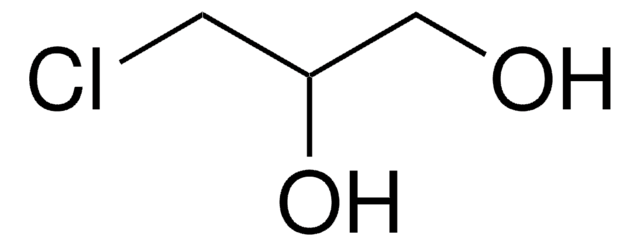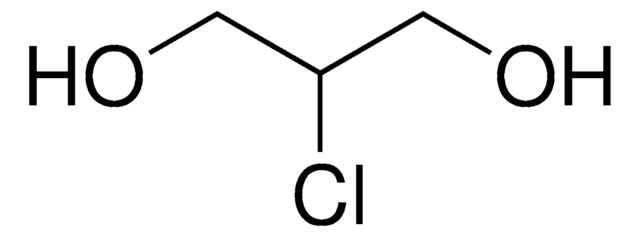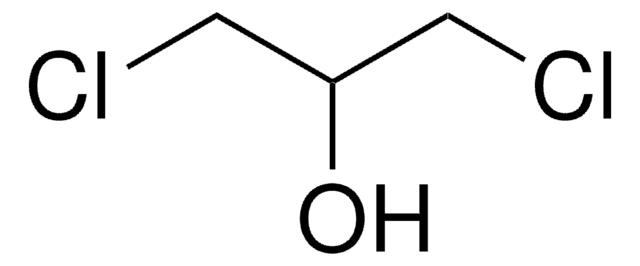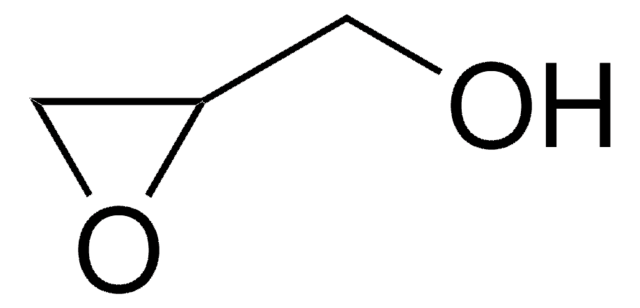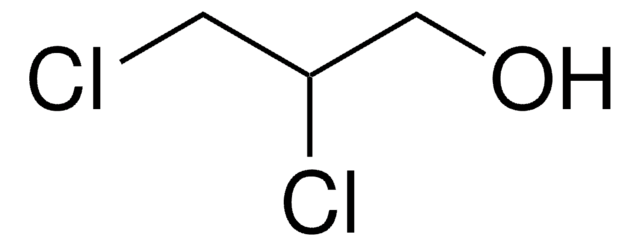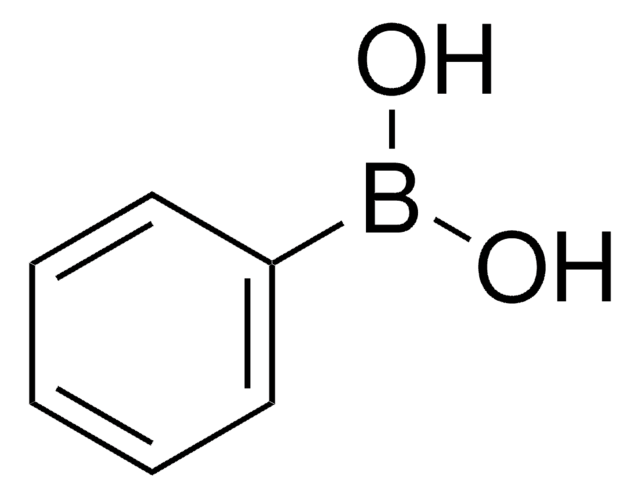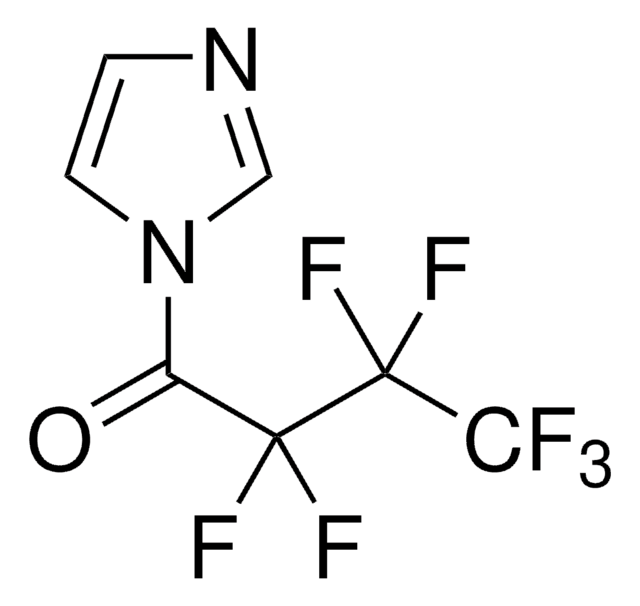32406
(±)-3-Chloro-1,2-propanediol
analytical standard
Synonyme(s) :
α-Chlorohydrin, α-Glycerol chlorohydrin, α-Monochlorohydrin, 3-MCPD
About This Item
Produits recommandés
Qualité
analytical standard
Niveau de qualité
Pression de vapeur
0.04 mmHg ( 25 °C)
Durée de conservation
limited shelf life, expiry date on the label
Technique(s)
HPLC: suitable
gas chromatography (GC): suitable
Indice de réfraction
n20/D 1.480 (lit.)
pb
213 °C (lit.)
Densité
1.322 g/mL at 25 °C (lit.)
Application(s)
cleaning products
cosmetics
food and beverages
personal care
Format
neat
Chaîne SMILES
OCC(O)CCl
InChI
1S/C3H7ClO2/c4-1-3(6)2-5/h3,5-6H,1-2H2
Clé InChI
SSZWWUDQMAHNAQ-UHFFFAOYSA-N
Vous recherchez des produits similaires ? Visite Guide de comparaison des produits
Description générale
Application
Produits recommandés
Mention d'avertissement
Danger
Mentions de danger
Conseils de prudence
Classification des risques
Acute Tox. 2 Inhalation - Acute Tox. 3 Oral - Carc. 2 - Eye Dam. 1 - Met. Corr. 1 - Repr. 1B - Skin Irrit. 2 - STOT RE 1 - STOT SE 1
Organes cibles
Kidney, Testes
Code de la classe de stockage
6.1A - Combustible acute toxic Cat. 1 and 2 / very toxic hazardous materials
Classe de danger pour l'eau (WGK)
WGK 3
Point d'éclair (°F)
235.4 °F - closed cup
Point d'éclair (°C)
113 °C - closed cup
Faites votre choix parmi les versions les plus récentes :
Déjà en possession de ce produit ?
Retrouvez la documentation relative aux produits que vous avez récemment achetés dans la Bibliothèque de documents.
Les clients ont également consulté
Notre équipe de scientifiques dispose d'une expérience dans tous les secteurs de la recherche, notamment en sciences de la vie, science des matériaux, synthèse chimique, chromatographie, analyse et dans de nombreux autres domaines..
Contacter notre Service technique